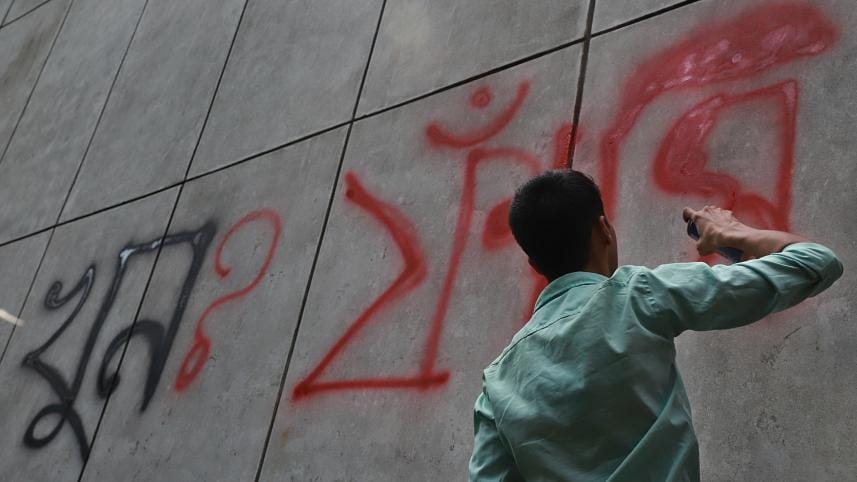What creates these criminals?

The recent barbaric murder of a second year BUET student, Abrar Fahad has left all of us appalled and unsettled. While most of us are left traumatised after the incident, more than that, everyone seems not to fathom how some fellow students could commit such a ruthless act in cold blood. While this heinous crime is ubiquitously being condemned by all, it is equally important to comprehend what made criminals in the first place; what have been the motivations and push factors compelling these young students to take the life of an innocent person. Over the past week, a lot has been said and written regarding the growing prevalence of a culture of impunity and lawlessness that has eroded our political institutions and law enforcement system. While all of these factors play an enabling role in this pattern of criminality, we also need to pay heed to the deriving process through which these university students become so inhumanely deviant.
In criminal psychology, criminals can be classified into five distinct groups, including individuals who have compulsive criminal drives, psychological deficiencies or simply anti-social tendencies due to developmental aberrations. But one type of criminal also belongs to groups of ordinary individuals who become criminals due to external sociological or sub-cultural influences. All of the criminals in the Abrar murder case are above average students studying in the most prestigious engineering institution of the country, so it is improbable that they had precursory psychological deformities. Also, the father of one of the key suspects, Anik Sarkar, claims that his son has always been a meritorious and distinguished boy from their locality and he fails to fathom how or why his son got involved in such murderous activities. Thus, it is more likely that the culture of dirty politics and violence in campus took him down that path.
The culture of pro-government student bodies beating up regular students at campus is not new. This disturbing practice has been observed since the regime of BNP and Jamaat with their student wings, Chhatra Dal and Chhatra Shibir adopting these same means of control and supremacy n campus. This squalid legacy has ever since been kept alive as a tool of exploitation by consecutive regimes. On the other hand, over the past few years, it also has become a reality that anyone who criticises the establishment is considered to be anti-establishment or allies of Chhatra Dal and Chhatra Shibir.
The Chhatra League has become the so-called protector of the campus from insurgency or anarchy, which in reality has only smothered the voice of dissent and democracy at large. It also must be noted that while it is undeniable that Chhatra Dal and Chhatra Shibir had their share of criminal records, it is not up to Chhatra League to penalise them for who they are. But members of the former groups have been dehumanised to such an extent that it has become normal to "teach them a lesson" through whatever means possible: ragging, battery or even murder.
The golden epoch of student politics at campus has waned to non-existence. Corrupt practices like bribery, favouritism, sycophancy and intolerance have taken over collective and democratic values. People who do not even believe in Bangabandhu's ideologies can today become an ardent member of Chhatra League by means of sycophancy and preferential treatment. However, it also must be remembered that fear and insecurity at campus compelled these students in the first place to take refuge under the umbrella of Chhatra League. When they get over their own fears and insecurities, it is their turn to instil the same fear and insecurity among hundreds of other students.
Fear is one of the most powerful motivators of behaviour. Power, on the other hand, gives an individual control over their environment and over their fears. Dictators like Stalin, Hitler or Saddam Hussein, all had fearful and abusive parents that sowed the seeds of desire for fear inducing power in them.
Similarly, when the vulnerable students at campus are left with options between fear and power, most make their way to power through whatever means necessary including, blind obedience to authority.
Today, students have developed so much resentment and abhor against Chhatra League that they are protesting for the ban of this and all other forms of party affiliated student political organisations on campus. Years of torture, exploitation and injustice have pushed students to believe this to be their only way out. But will this ban really result in a healthy and safe campus, in the face of the prevailing malady of detrimental social, cultural and political practices? The root issues that turn meritorious students into criminals: culture of impunity, lawlessness and strangulation of freedom of speech are yet to be addressed. And until then, Abrar's will be just another name in the growing list of victims.
Nousheen Sharmila Ritu is studying in Criminology Department at the University of Dhaka.
Email: tazree96@gmail.com



 For all latest news, follow The Daily Star's Google News channel.
For all latest news, follow The Daily Star's Google News channel.
Comments